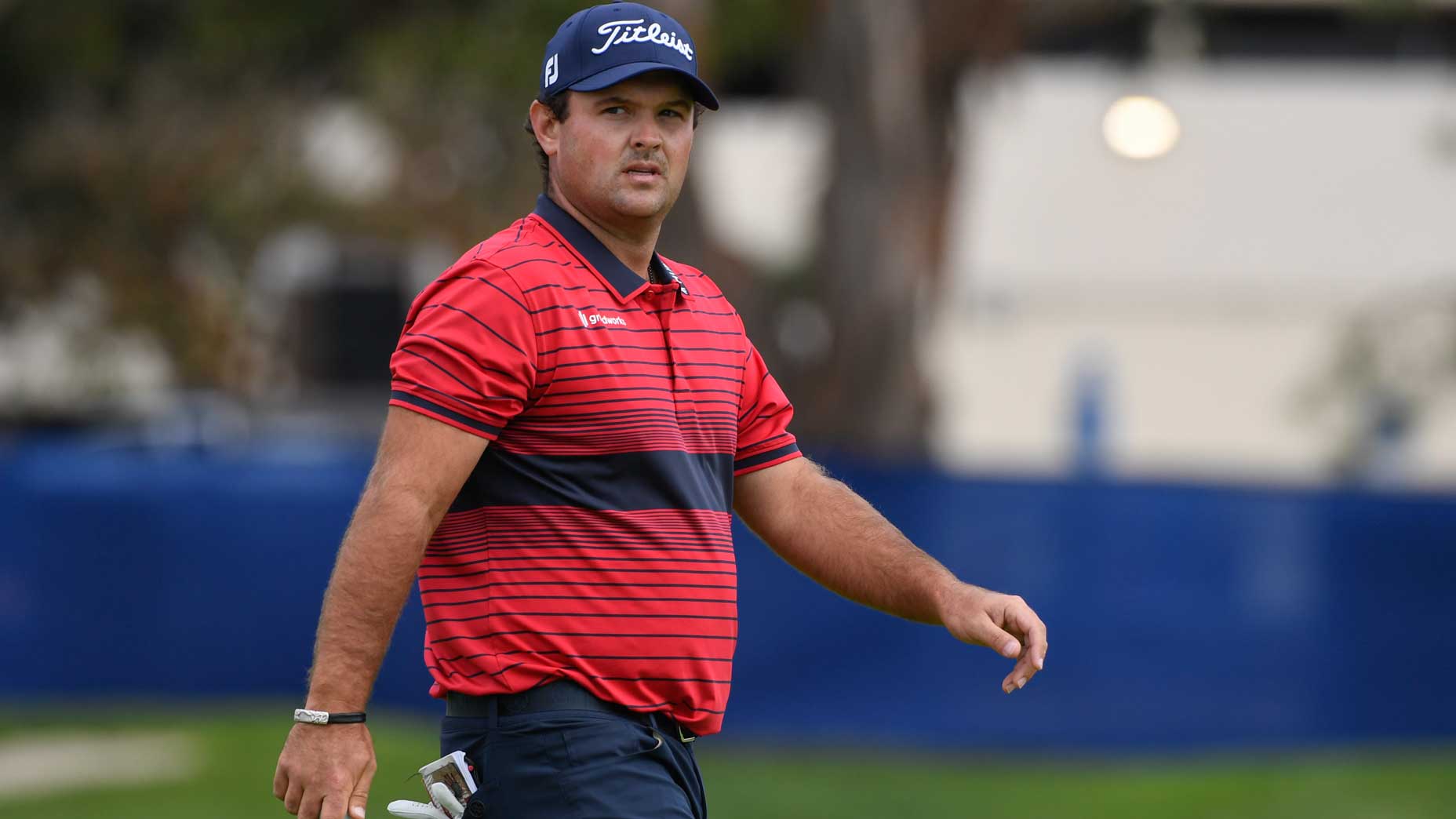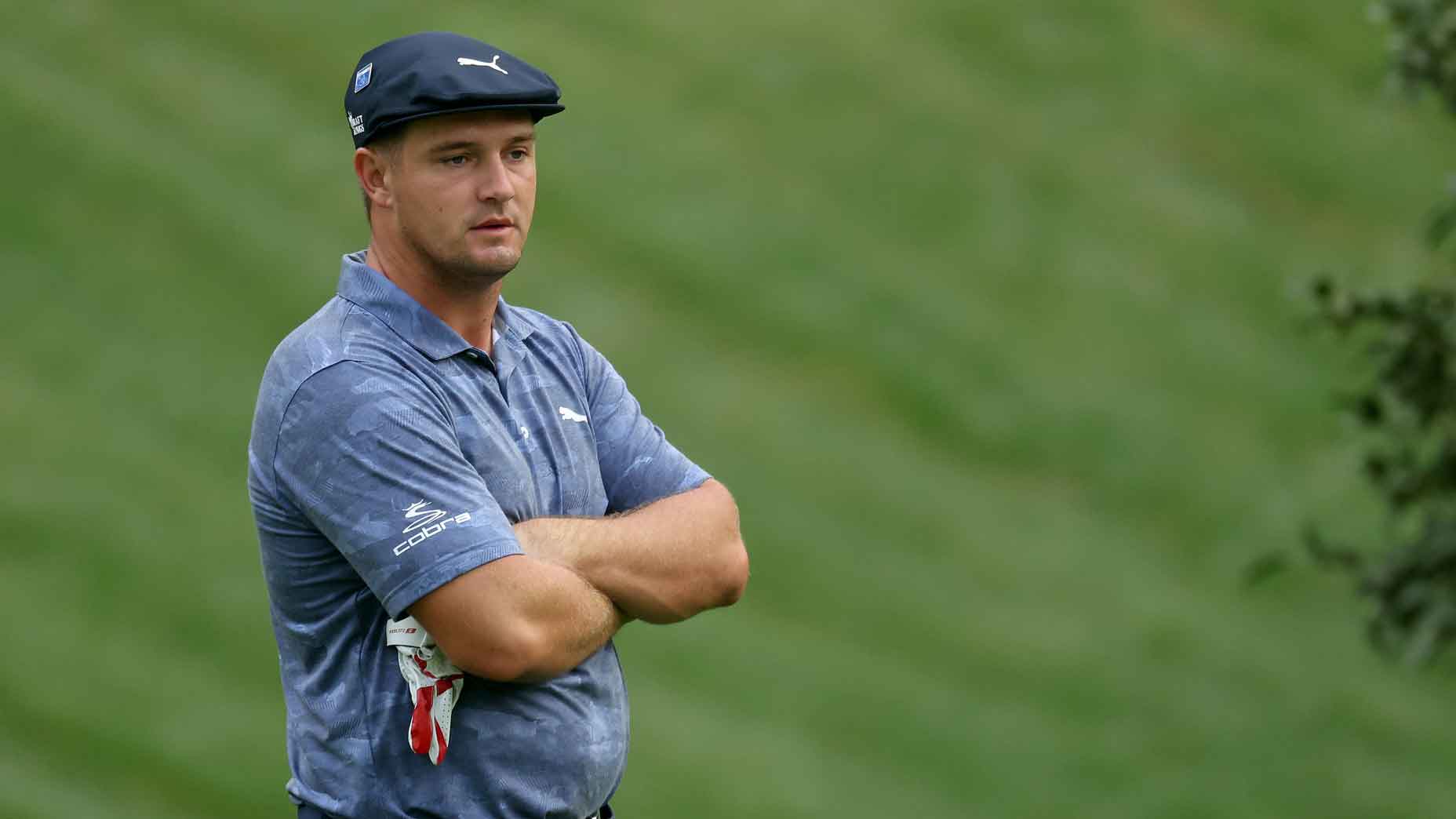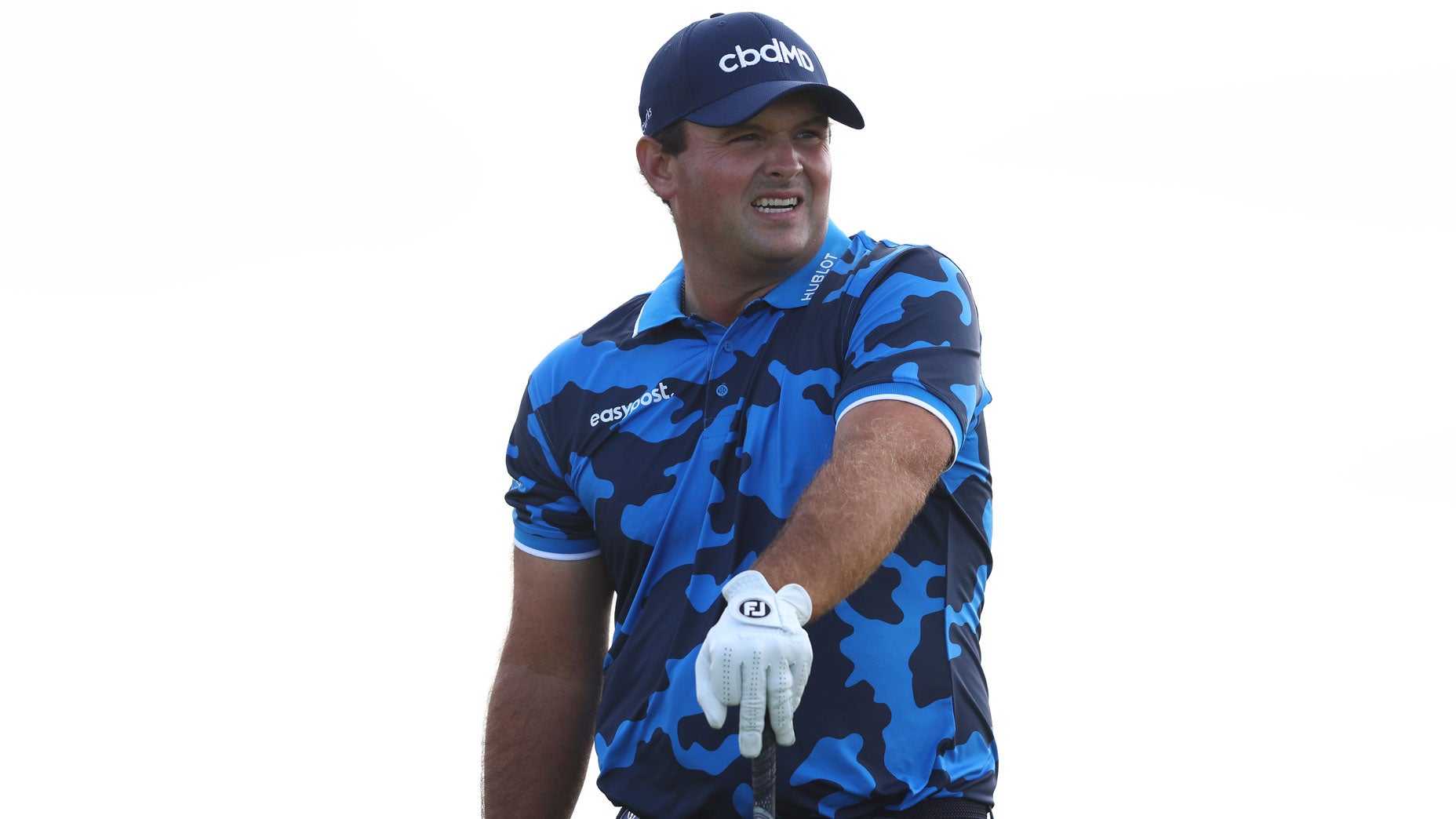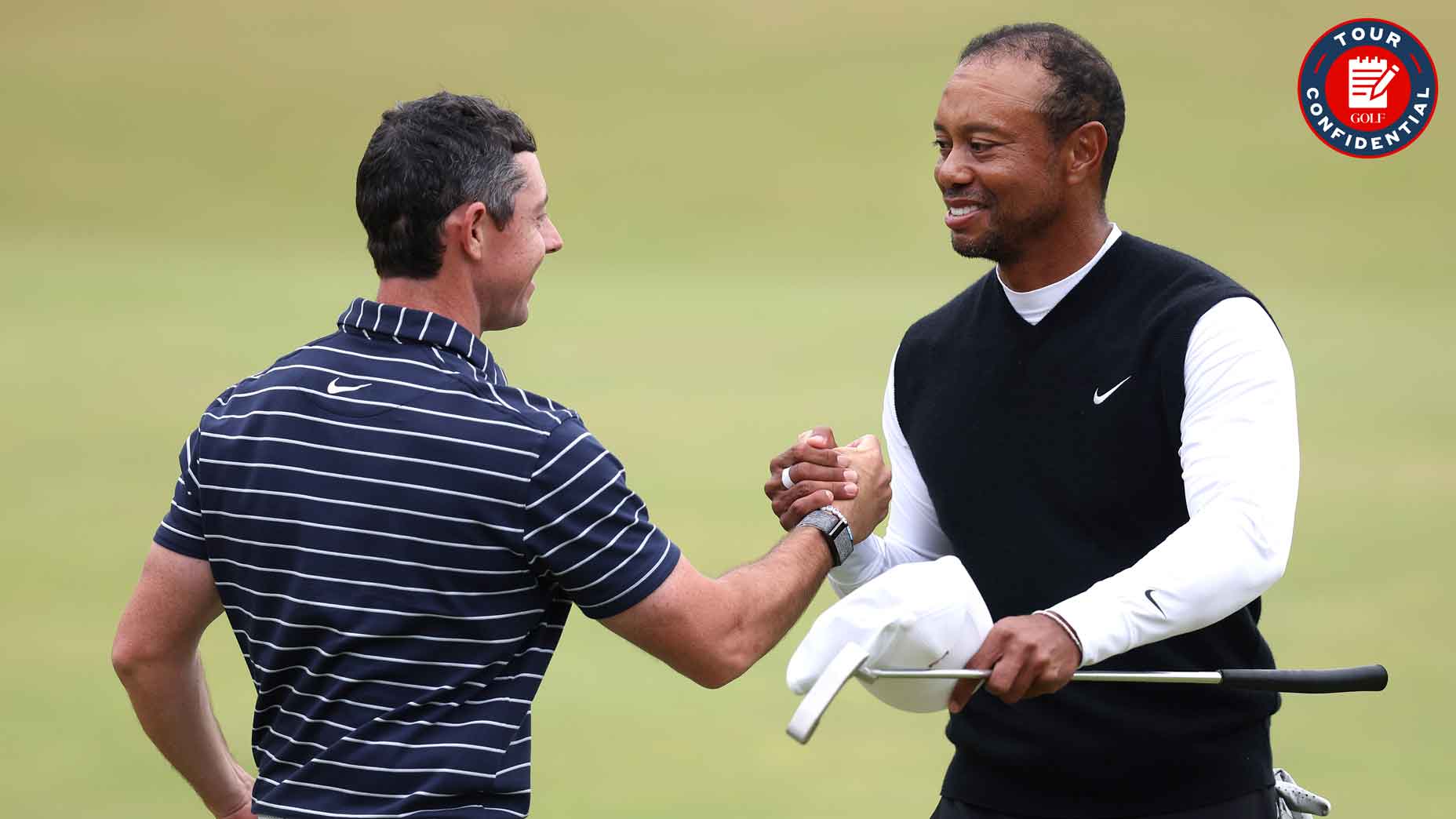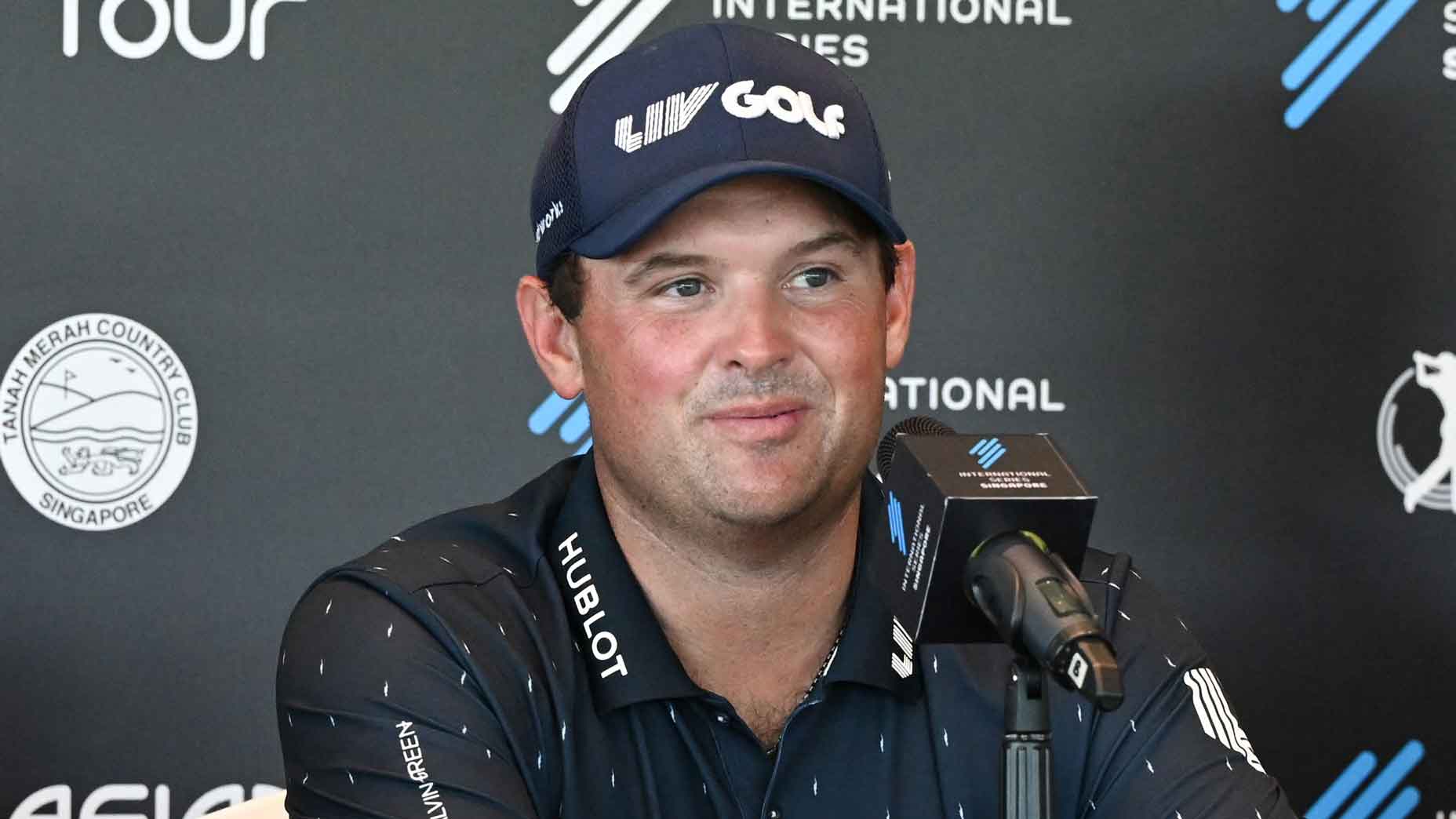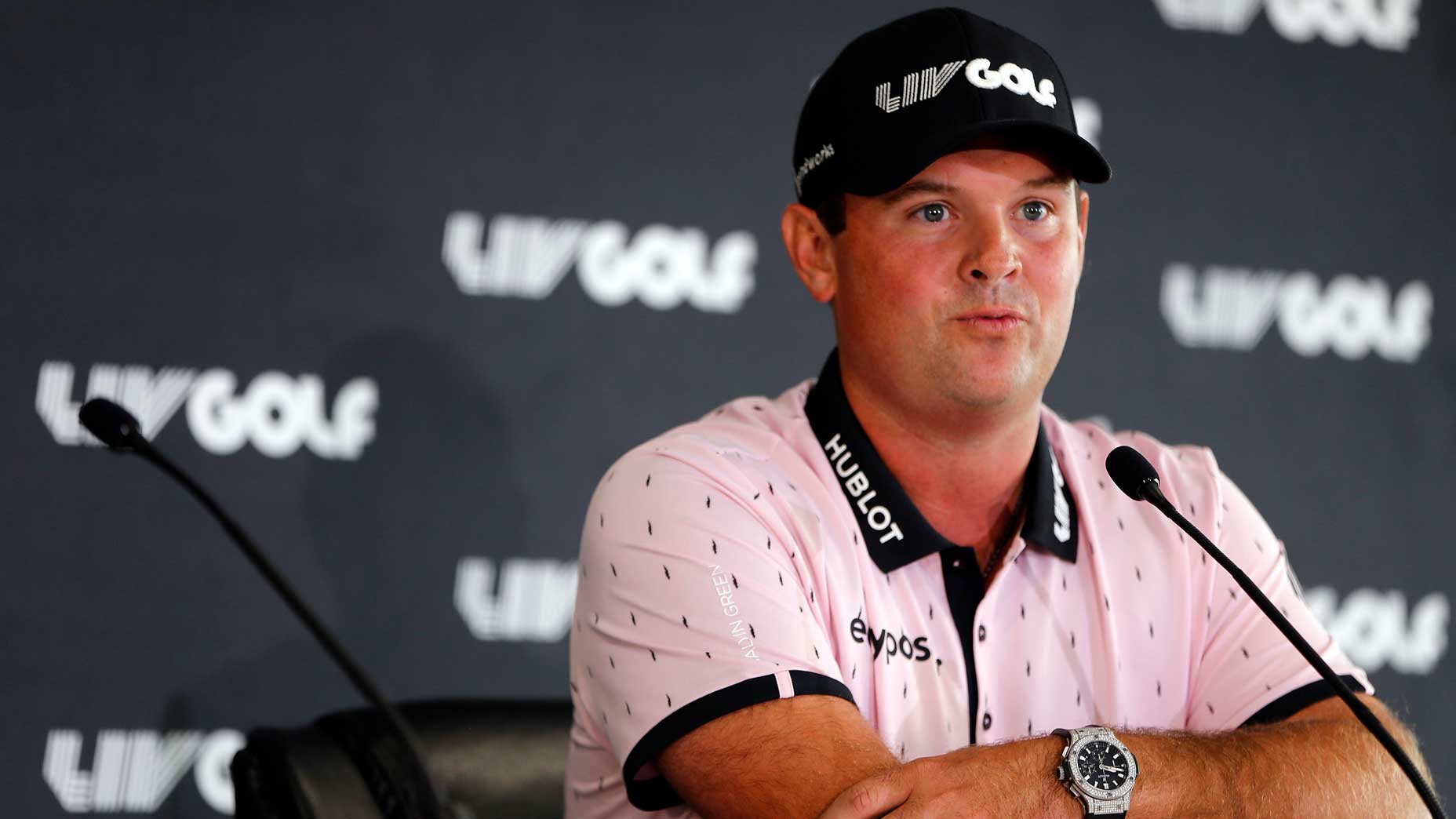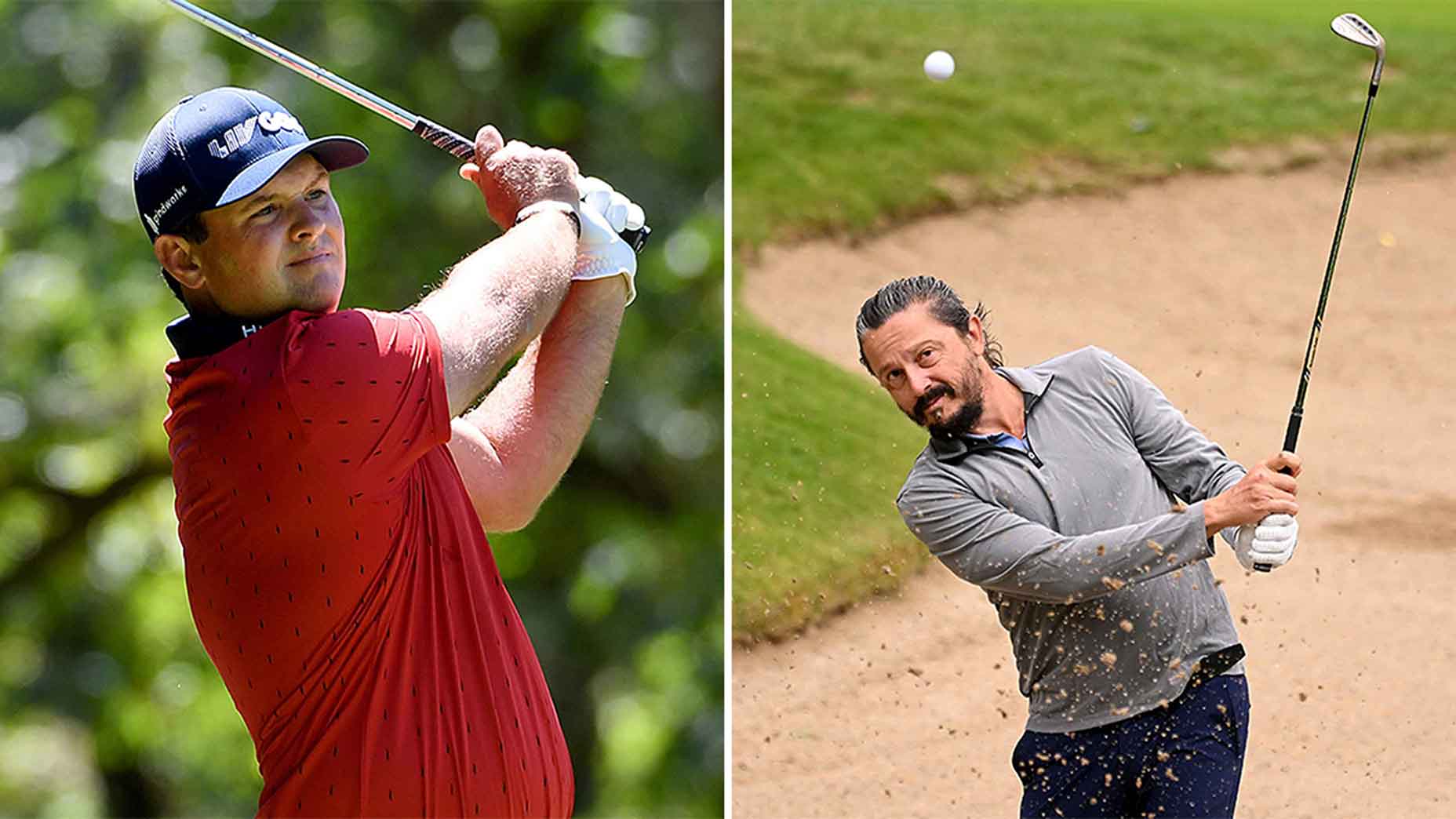By way of introduction, let me say something quickly: This might seem like a dumb Internet story, and it’s that, too, but it also matters! It’s crucially important to the life and career of the No. 10-ranked golfer in the world. Anyway, here’s the story.
It was mid-morning in the suburbs of Paris, France, when I received the strangest interview assignment of my career.
Patrick Reed, reigning Masters champion, was set to tee off in his Ryder Cup singles match in just under an hour, but already he was under extra scrutiny: An account under his wife Justine’s name had been tweeting about the U.S. team — namely the high-profile split between Reed and long-time partner Jordan Spieth — since the night prior.
Twitter user @JustineKReed tweeted to “ask Jordan” about the split, suggesting that Spieth, not Reed or team captain Jim Furyk, was behind the decision. The account also lashed out at the media, calling Golf Channel’s coverage “journalistically disqualified” after one its editors criticized Reed’s play on Saturday.
“Patrick never said that he didn’t want to play with Jordan,” she tweeted. “Maybe you should ask Jordan why he didn’t want to play with Patrick. You don’t have to love the people you work with – but when you have chemistry and success, you go with it for the TEAM.”
American golf fans readily pounce on any ounce of team-room drama in a losing Ryder Cup effort. So even though JustineKReed had only tweeted four times before that weekend, her latest salvo quickly made the rounds. (Also, those prior four tweets were telling; each addressed a perceived slight from golf’s governing bodies, like Reed being sent off Pebble Beach’s 10th tee instead of Spyglass Hill at the Pebble Beach Pro-Am or why the U.S. Ryder Cup was tweeting outdated standings.) So my assignment was simple, if strange: Find Justine Reed and confirm that the account — and the comments — were hers.
I can assure you- you’re wrong. Patrick never said that he didn’t want to play with Jordan. Maybe you should ask Jordan why he didn’t want to play with Patrick. You don’t have to love the people you work with- but when you have chemistry and success, you go with it for the TEAM.
— Justine (@JustineKReed) September 28, 2018
It didn’t take long to track down Justine by the practice area, but after I introduced myself our conversation was strange, brief and uncomfortable. She waffled on the Twitter account, saying at first that she wasn’t sure and then, when I showed her the tweets, that she “didn’t really want to say,” before telling me she actually didn’t want to talk to golf media and walked away.
It wasn’t technically a confirmation, though it felt like one — it felt like a reasonable assumption that if it wasn’t her account, she would have said so. She would have hardly been the first social-media user to say something over Twitter that she was less comfortable saying in person.
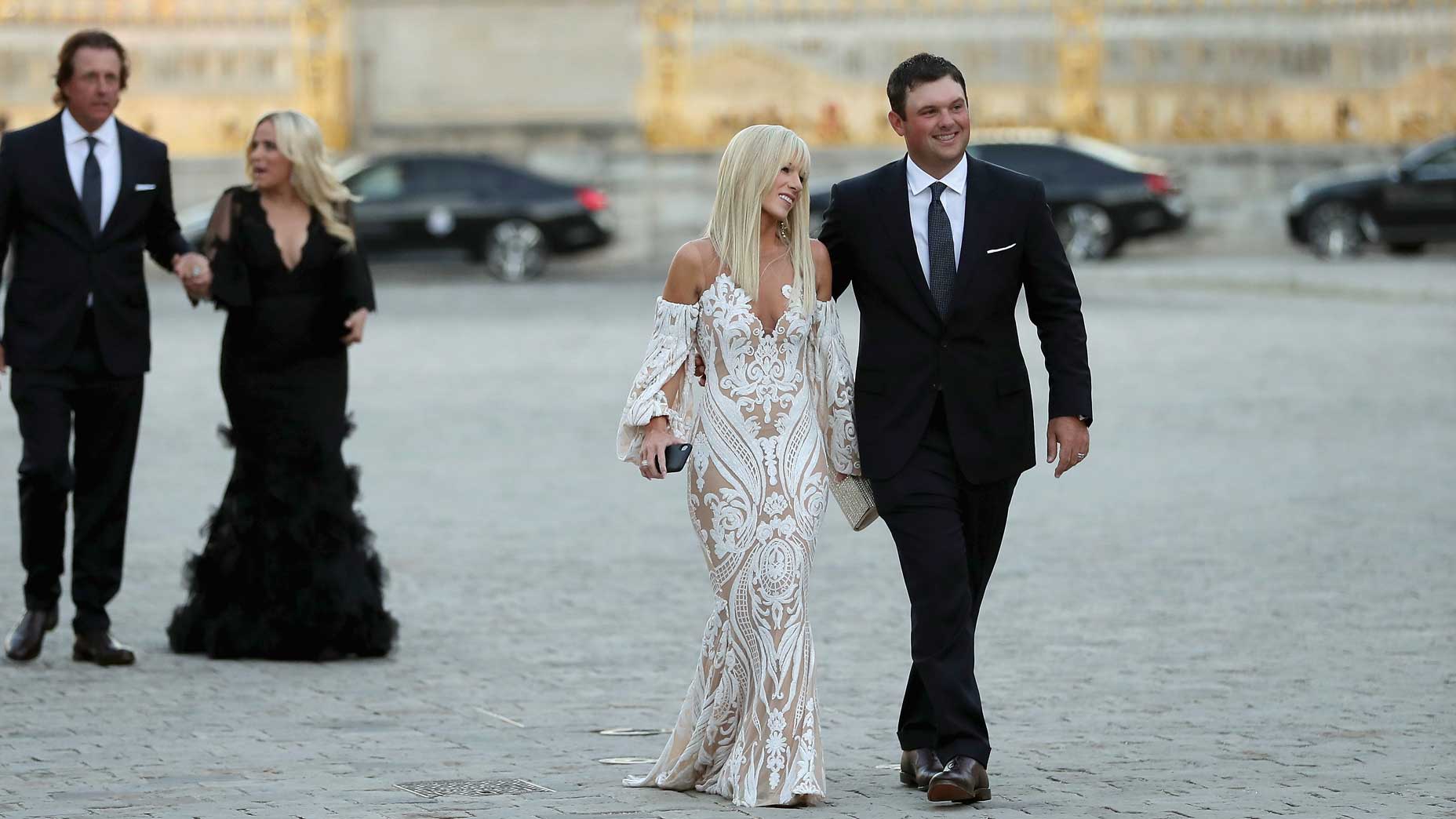
Patrick won his match that day 3 and 2 over Tyrrell Hatton. But the Europeans trounced the U.S. side, and Justine’s tweets, combined with an interview Patrick gave to the New York Times later that evening, cemented his place in golf fans’ minds. Even in the context of the Ryder Cup, his favorite event, it was Team Reed against the world.
***
The Ryder Cup tweets weren’t the first time Team Reed’s social-media usage had garnered him unwanted attention. In fact, a post from Patrick’s social-media accounts had raised eyebrows just two months prior. The photo showed Patrick, Justine and Justine’s sister Kris, all smiling. But the caption was less than smiley, going after the PGA Tour for giving them tickets in the “line-drive section” while Justin Thomas and Jordan Spieth, among others, sat closer to the field.

Nor was it the last time. JustineKReed never tweeted again after the day of our brief exchange at Le Golf National. But by the end of 2019 another Twitter account, this one under the handle @useGolfFACTS, began sending tweets in defense of Reed — and taking shots at nearly everyone else. Adam Scott’s swing? “Mechanical.” Justin Thomas? “Bad attitude.” One reporter was “pushing a false narrative” about Reed. Another was “a hater and a bully.”
Mostly, the account responded to criticism of Reed, which had become commonplace following his rules infraction at the Hero World Challenge, or pointed out perceived slights. It demonstrated a thorough understanding of the nuances of the golf world, stirring up World Rankings arguments, questioning Ryder Cup qualifying and, deepest in the weeds, attacking tournament setups for too many right pins, favoring a fader of the ball (Reed prefers a draw).
“Set-up” being the prerogative word! These pins favor a left to right (fader of the golf ball) how many right pins this time, last week same thing. Makes it predictable and boring in my opinion.
— GolfFACTS (@useGolfFACTS) August 6, 2020
Plenty of Twitter users suspected the account belonged to Justine, and they often addressed replies to “Justine” or “Patrick’s wife” — to which the account would often respond — but that’s hardly court-admissible. Still, the connection between the faceless account and Patrick’s own verified account suddenly became clear this past Saturday evening, in the midst of another high-profile rules kerfuffle.
Starting at 7:59 p.m. ET, @useGolfFACTS tweeted out a missive about Rory McIlroy, who had taken a similar drop to Reed.
“Rory McIlroy @McIlroyRory did the same exact thing on 18 TODAY and didn’t even call a rules official. End of story. Quit trying to sabotage Patrick Reed.”
The account tweeted the same message in response to several other tweets at 8:02, 8:03, 8:05 and 8:08. At 8:09, the exact same reply was sent from Patrick’s account.
https://t.co/qza5Aa1yrS. RORY MCILROY @McIlroyRory DID THE SAME THING TODAY ON HOLE 18! AND DIDN’T EVEN CALL A RULES OFFICIAL OVER TO DEEM THE BALL EMBEDDED. END OF STORY.
— Patrick Reed (@PReedGolf) January 31, 2021
The @useGolfFACTS account tweeted the same reply 11 additional times in the half-hour that followed before calling it a night. Does that mean the same user was sending tweets from both accounts?
https://t.co/yZ66WR9ej5. RORY MCILROY @McIlroyRory DID THE SAME THING TODAY ON HOLE 18! AND DIDN’T EVEN CALL A RULES OFFICIAL OVER TO DEEM THE BALL EMBEDDED. END OF STORY.
— GolfFACTS (@useGolfFACTS) January 31, 2021
Rory McIlroy connected the dots and said he wasn’t holding the tweets against Reed in particular.
“I’m not sure it was Patrick,” he said on Wednesday with a knowing smile. “Could have been someone from the Reed family, but I don’t think it was Patrick.”
After his win on Sunday, Reed confirmed that he’s not the one doing any social-media scrolling when he’s competing.
“When I’m in tournament weeks I don’t ever look at anything,” Reed said. “I can get in my own world, and that’s stuff that my coaches and team work on.” He reemphasized that same point in Saudi Arabia on Wednesday, saying, “I don’t read it. I think that’s the easiest way is to not read all the chatter of what’s going on on social media.”
I promised you there was an important point here, so let’s get to it. In addition to steering clear of any future rules controversies, Reed needs a major shift in another area: how he portrays himself to the outside world. We get very little sense of how Reed thinks or feels or spends his time away from the course. It’s one thing for a player’s social-media accounts to be bland. But in this case it seems likely that the same person who is writing the tweets that appear on Patrick’s account, including now-infamous episodes from Torrey Pines and Fenway Park, is also writing from @useGolfFacts, a faceless pro-Reed account that regularly trashes his peers, competitors and Ryder Cup teammates, from Justin Thomas to Xander Schauffele to Jon Rahm and beyond. That seems like an imperfect way to represent Reed to the world.
(For what it’s worth, Reed’s lawyers pushed back on the connection between accounts in a carefully-worded statement to Golf Digest.)

Image matters. That might sound superficial, but it’s tangibly, irrefutably true. To fans. To teammates. To sponsors. Reed sometimes says, “You can’t please everyone,” but what he leaves out is that you can try to please a solid majority. There’s a reason that fans responded one way when Reed took relief from a ball he thought was embedded and another way altogether when Rory McIlroy appeared to have done the same thing. There’s a reason we moved on from McIlroy’s bunker incident at the Masters in 2009 and forgave Tiger Woods’ run-ins with hazard lines in 2013 and quickly moved past Jon Rahm’s ball-moving chip at the 2020 Memorial. Heck, Phil Mickelson intentionally broke the rules mid-U.S. Open just two-and-a-half years ago and we’ve moved past that, too.
Reputations can be changed. People can evolve. Images can update. Bryson DeChambeau, himself no stranger to criticism, has made intentional changes to let the outside world in.
“We all mess up,” DeChambeau said Wednesday, also from the Saudi International, reflecting on Reed’s weekend. “I’ve messed up in the past and we’re all human. Unfortunately sometimes it comes out in a way that doesn’t look great. We all just learn from it. And I hope Patrick learns from it, and just like I did with my slow play stuff and all the other stuff that went on a couple years ago, I’ve grown a lot from it and I’ll continue to grow, as I’m sure he will.”
Bryson DeChambeau details physical, mental toll of his transformationBy: Jessica Marksbury
On Wednesday, McIlroy opened up about the uneasiness he felt following accusations that he had purposefully broken the rules, expressing his humanity and vulnerability. His Ryder Cup rival could take notes.
“Did I do the right thing? Did I play by the rules? Did I see something that wasn’t there? It was a bit of a rough Sunday night,” he said. “I just started to doubt myself a little bit.”
In my interactions with Patrick I have found him engaging, playful and wry. There’s no question that he’s skeptical of the media as an entity, but when he hears an interesting question from a comfortable source, he’ll offer a thoughtful response. There’s also no diminishing his playing credentials; he’s a supreme talent with an artful game who loves golf, period, and loves to compete even more.
That’s not to deny his rules flaps nor excuse other slip-ups over the years. But it is to say that Reed is more than a one-dimensional cartoon villain.
In 2015, Reed told GOLF he had no interest in playing that role. “I don’t want to be the bad guy,” he insisted.
Only he can change that perception now.
